There are places I’ll remember
All my life though some have changed
Some forever, not for better
Some have gone and some remain
All these places have their moments
With lovers and friends I still can recall
Some are dead and some are living
In my life I’ve loved them all
There’s plenty about the lyrical output of The Beatles that is banal in the extreme (“Love, love me do”, for example) but the lyrics of “In my life” have a straightforward, unadorned sort of sentimentality that hits me in my emotional core. I remember singing this in the back of a van with my cousins on the day we buried my dad. There’s something about them that just cuts to the quick of the thing, is my, admittedly inexpert, opinion.
And certainly it captures a certain sort of ennui that I associate with having lived in Christchurch almost my whole life and having watched much of that city fall away.
I was lucky to have been able to document a lot of that period in my blog posts. There are so many things that I’ve forgotten that is a really helpful spur to the memory. Still, it’s difficult to put into words how the physical landscape of my life has changed. In very many ways, small and large, Christchurch is no longer the city I grew up in. In some ways that’s a good thing, others less so. But I thought I’d try to get across the enormity of it, and the way that remembering your own past becomes both a little bit harder and inextricably tied to the quakes, by using photos.
Below are some of the places I’ll remember all my life though some have changed.
My workplace at the time of the quakes. When I think of it, I get flashes of 70s era wood panelling, purple concrete, the view from my desk on the first floor down onto Manchester St, and the smell of spices from the Asian food warehouse that shared the building.

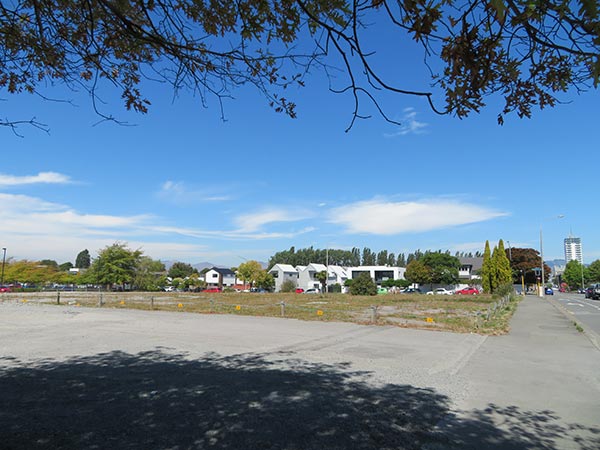
I do not know why this is still covered in gravel and weeds 9 years after it was demolished. I shrug about this sort of thing multiple times a week.
The corner dairy holds a special place in the heart of many Kiwis given that it was the venue and dispensary for 20c or sometimes if you’d been very good 50c mixtures. In my memory the peanut slab that you got at the dairy (sans wrapper and carefully placed in a white paper bag with a pair of tongs) was the most delicious thing in the world. An Indian family ran the dairy when we frequented it in the 1980s and they were most helpful and didn’t seem in the slightest bothered by me turning up with handwritten notes from my mother instructing them to sell me a packet of Rothmans (cigarettes).
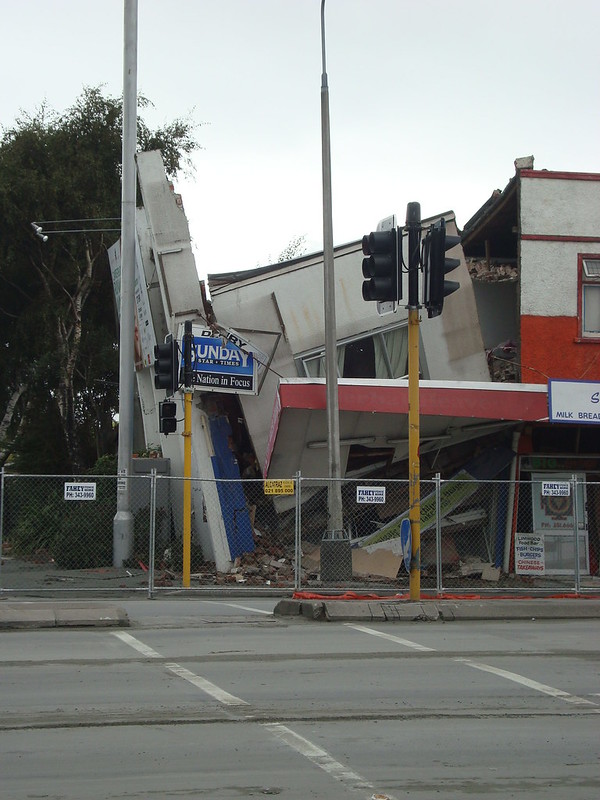

Good luck getting a 50c mixture here.
I walked through Linwood Park every day on my way to primary school and our house was so close to it we treated it like an extended backyard. I learned to ride a bike there, and, on its cricket pitches discovered a strong aversion to sports (or at least catching cricket balls which were, to my soft and youthful fingers, as hard as rocks. They also hurt when they hit you in the leg but my primary school seemed intent on inflicting it on all of us so there wasn’t much to be done). In any event, the grass was flat and green and pleasing.
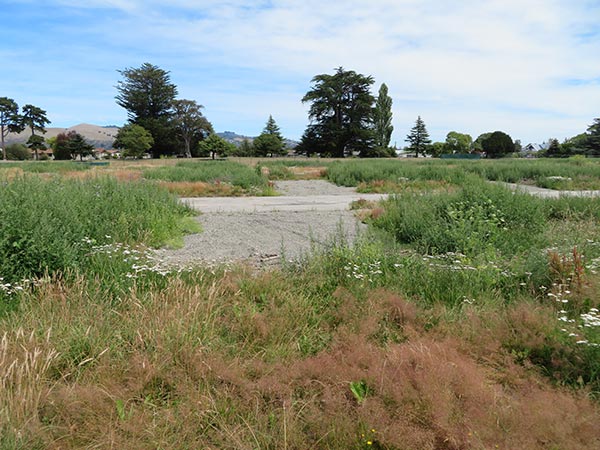
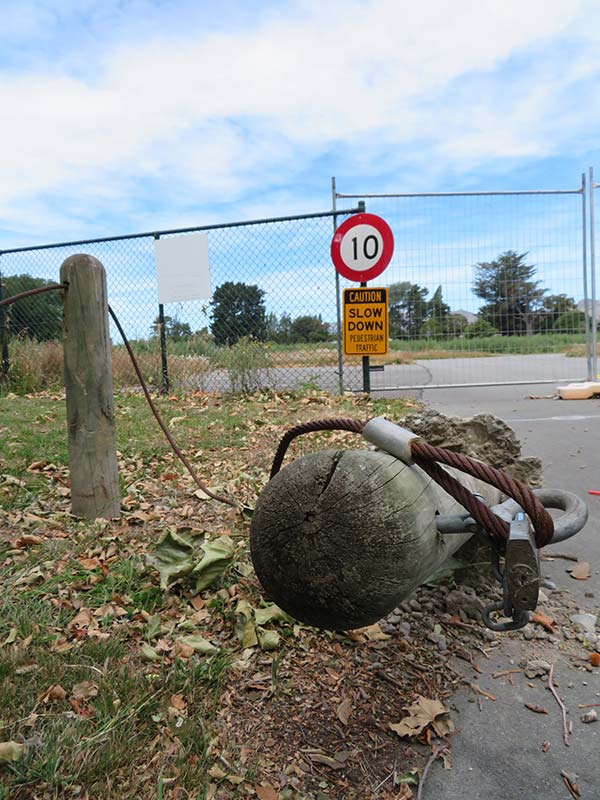
This barren, unkempt wilderness is what happens when you set up a temporary village to accommodate people who are getting their homes repaired, then when it’s no longer needed you remove the village part.
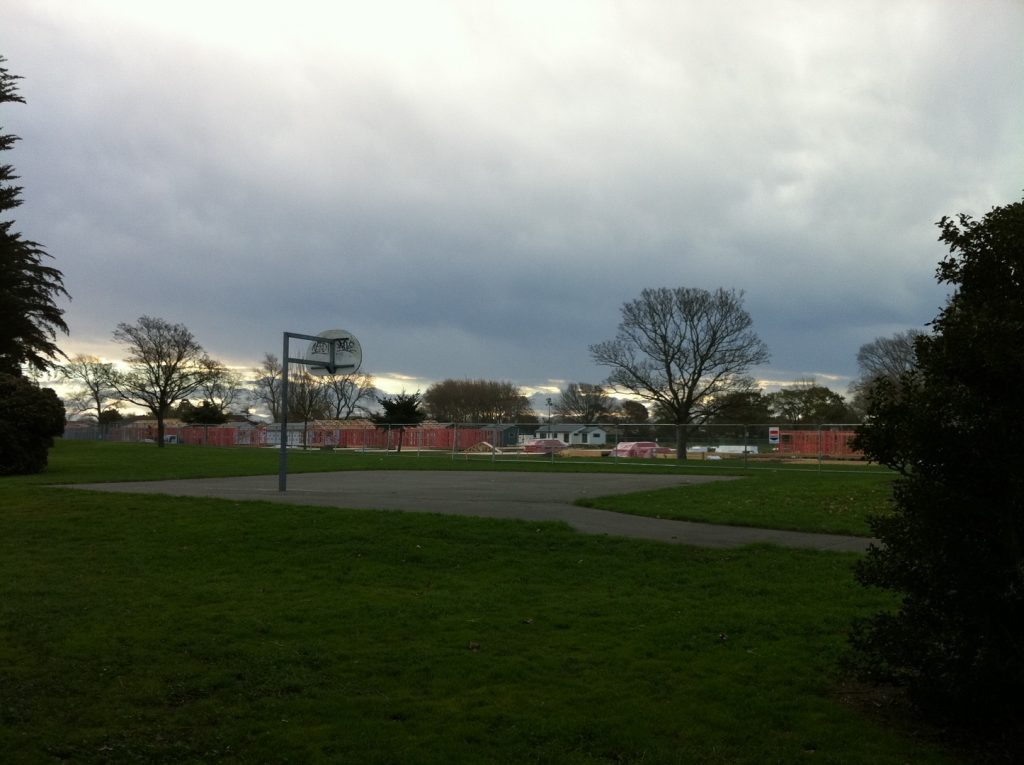
My old high school was one of those standard H-shaped blocks with various prefab classrooms at one end. My memories of the place are difficult to parse, soaked as they are in adolescent hormones. I remember learning to type on old Olivetti manual typewriters (a valuable life skill for a writer), washing brushes in the art room sink – we were allowed to have the radio on and listen to music – attending uninspiring assemblies in the hall, and just generally feeling like the most awkward, socially ill-equipped person on Earth. So normal high school stuff.
A couple of years ago they had a pre-demolition reunion so that former pupils could walk the halls, or take a turn around the quad one last time. I got confused about which weekend it was on and subsequently missed it. The new one’s coming along nicely though.
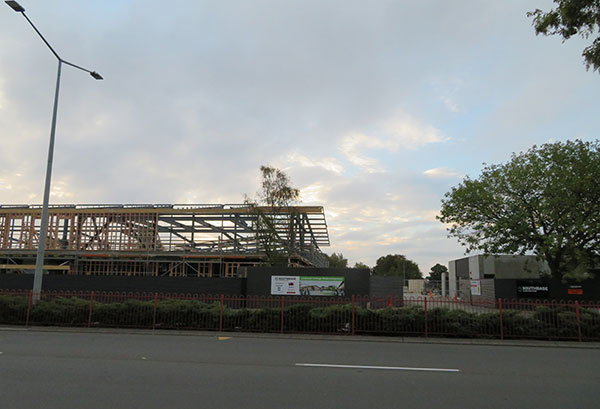
I was the last person to live in the house I was renting at the time of the quakes. It came through the September quakes moderately okay (a bit of cracking in places), but got pretty munted by the big one in February of 2011. I still have a small piece of its chimney, that I picked up off the ground, on a shelf in my living room.
I took this snowbound photo of it in June 2012. It stood empty for years. I once went back and was surprised to find the front door open. Someone had been in and removed the hotwater cylinder, probably for its copper (hotwater cylinder theft was common in the postquake years). I let the rental company know and they boarded it up.
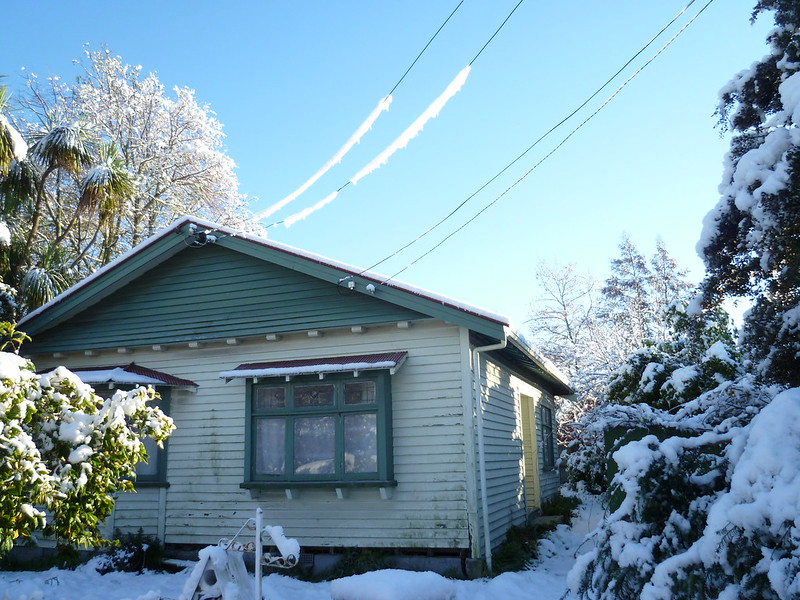
I’m not sure when they knocked it down but they also demolished the two other neighbouring properties that were owned by the same person making for one big fenced off section. They also took out the lemon tree and the stupidly prolific pear tree that fed the whole neighbourhood for a couple of autumns when I got into the habit of leaving boxes of dropped fruit at the front gate.
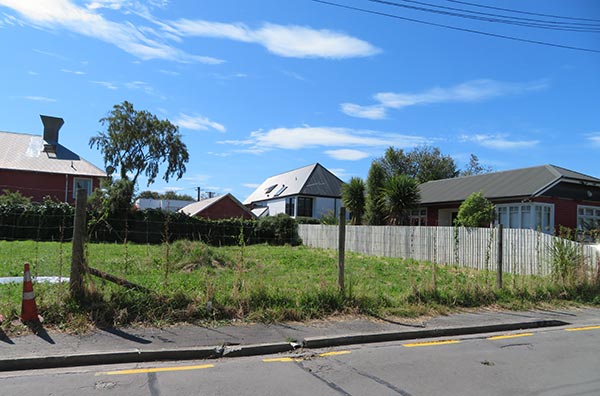
Not sure why there’s a hillock where my couch used to be.
What to make of all this?
Well, I think it’s worth mentioning that there are places in the city that are noticeably better than they ever were. The banks of the Avon River with their poetry emblazoned steps and eel-friendly overhangs are more useable than the old grassy banks and intermittent built in seating that used to be there. Tūranga, the central library, is much beloved and with good reason – it has sunny nooks aplenty, and blazes gold when the light hits it just right.
And even without the earthquakes, the chances are high that at least some of these places would have changed anyway.
And yes, my memories of these places do remain. But…
But.
I find that I don’t recollect these memories unless I make a specific effort to. I don’t get the same visual cue that can so often call a memory into your mind when you see the place where something happened. They are so altered visually that I think the remembering is different. But I’m no expert on these things, and memory is a slippery, transitory thing at the best of times. But I do wonder what memories I’m not having in the daily course of things, simply because the streetscape, the corridor, the balcony that it happened on no longer exists.
Can you feel a sadness for the memories you can’t remember that you forgot? If you can, the French probably have a word for it.
And of course we’re all making new memories all the time.
I sometimes wish that my son could see the city that I grew up in, rather than this revamped version of it. But these feelings are fleeting and he is happy and knows no different. He’s never seen the Cathedral as anything but a ruin. I am amused at the thought that he may, one day when it’s fully repaired, feel nostalgic for its formerly broken state.
Wouldn’t that be something?
Fully get what you are saying. such mixed feelings. sorrow , anger , relief , the whole lot. Moments of joy and fun as well.
Yours was the voice of Christchurch for me. Your broken kitchen lavishly decorated with food from the fridge is one vivid memory I have from that time. You did a great job of keeping it personal. Thanks so much for just being you.
Totally understand the memory things,you explained it just right. Thanks for writing this and all your other blogs about the earthquakes, it helped to read someone else was thinking similar thoughts. Take care.
Great memories Moata. All those years I worked with you and never knew that, like me, you are a Linwood girl. I lived in Chelsea St so no need to traverse the park on the way to school. We did get to play there in our lunch hour though – on the “little side” where there was a hill almost as tall as Mt Everest – it was a shock to revisit as an adult & discover that if my feet were on the flat ground at the bottom my head poked well above the top of said “mountain”. Best wishes to you & your family